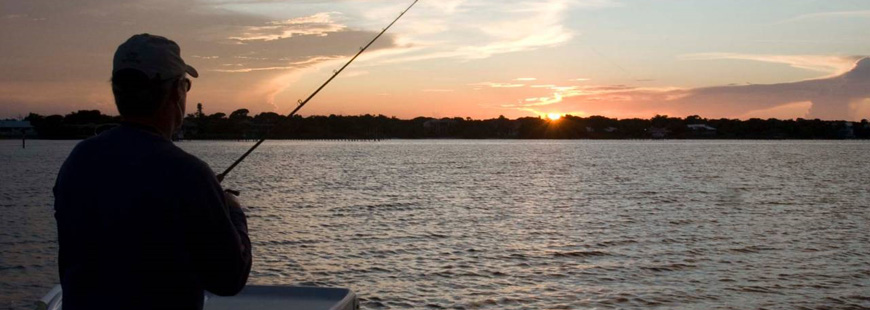Florida has had a reputation for being the “Fishing Capital of the World,” and with good reason. Its sunshine, shorelines and sportfishing opportunities attract anglers from around the world. There are few other places in the world where in one visit an angler can target species as diverse as billfish, bass, snapper and mahi, as well as tuna and swordfish.
But if Florida continues to face ecological disasters that diminish our fishing opportunities and threaten the well being of our coastal communities, that reputation may be soon be lost. In Florida, we have struggled with pollution-driven algal blooms that have devastated our inland and coastal waters, negatively affecting many local economies. This pollution has also closed beaches and destroyed reefs and seagrasses that provide the nursery habitats for rising generations of fish. In addition, climate change is creating uncertain and challenging conditions in the South Atlantic and the Gulf. Warming waters encourage more algae blooms in our region, displace fish that can’t stand the heat, and produce bigger and more extreme storms and hurricanes that damage all coastal habitats and increase likelihoods of coastal destruction.
Florida’s fisheries so far have withstood these challenges in large part because we have the right foundation in place to keep them healthy and productive. The Magnuson-Stevens Fishery Conservation and Management Act, our nation’s main federal fisheries law, has been the bedrock for ensuring our fisheries remain at viable or even healthy levels. Forty-seven fish stocks have been fully rebuilt under the Magnuson-Stevens Act’s conservation measures implemented following past reauthorizations of the law, including the mandate to set annual catch limits based on the best available science. This science-based management allows us to adjust our use of marine resources to account for the unpredictable environments, rightfully reducing fishing pressure to allow fish populations to bounce back more quickly after a deadly algae bloom episode or similar event. When populations have rebounded, we’ve been able to safely increase harvests.
The Magnuson-Stevens Act is the primary safeguard for keeping fishing opportunities plentiful for generations to come, and Congress will soon be reauthorizing this law, potentially opening it up to modifications. Representative Jared Huffman (D-CA), the chair of the House Subcommittee of Water, Oceans and Wildlife, is hosting listening sessions around the country to hear directly from fishermen, coastal residents and business owners whose daily lives are affected by this law. His next stop is today in Miami.
To keep fishing traditions strong in our state, Floridians need to clean up our own back yard with better wastewater management systems and restoration projects to rebuild the ecosystems that support our natural marine resources. As importantly, we must also keep our eye on the national policies that are in play right now. Any new changes to the Magnuson-Stevens Act need to build upon the existing science-based and conservation measures that are currently in the law. Our fisheries are under increasing threats from air and water pollution sources, and recent coastal events reinforce that we must be even more diligent about collecting reliable and accurate fisheries data in both good times and bad for accurate assessments about how best to manage our fisheries.
My family and I celebrate Florida’s magnificent coastal and ocean resources, and we appreciate the tremendous ecological and economic goods and services that our coastlines provide for us if we take care of them. Florida anglers have an opportunity to support our working waterfronts, beach communities, and world-renowned sportfishing by voicing support for science-based management of our fisheries and oceans directly to Congress. Today I’m showing up to be counted.


